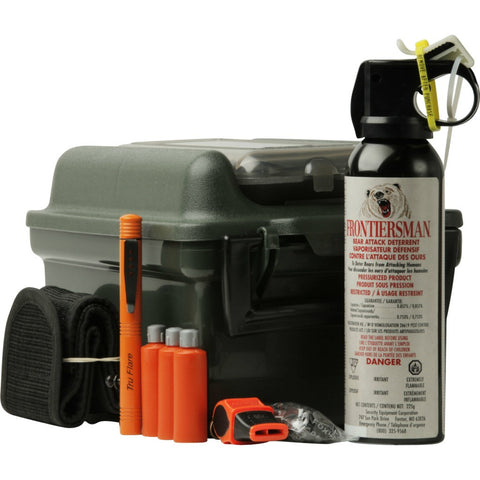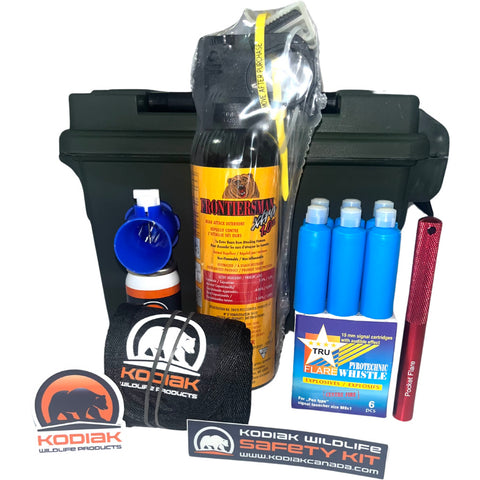
Grizzlies out of Hibernation
Click here for this full article by Rocky Mountain Outlook.
BANFF – A Banff grizzly can’t bear winter any longer.
A male grizzly bear, believed to be either The Boss or Split Lip, was spotted several kilometres west of the Banff townsite Friday (Feb. 28) – the earliest a grizzly has been recorded out of the den in at least the last decade.
Parks Canada officials say a resource conservation officer out doing wildlife corridor work that morning came across large grizzly bear tracks, and then almost immediately spotted the bear about 50 metres away.
“He popped up 50 metres in front of her; he likely heard her coming along,” said Blair Fyten, human-wildlife coexistence specialist for Banff National Park
“When she made a little bit of noise, he just moved away from her and went in the same direction she was going, so she just turned around came back down to the road,” he added.
“She never really had a really good look at him to determine who it would be, but it’s likely one of our well-known bigger males.”
The two dominant males in the Bow Valley are No. 122, also known as the Boss, and No. 136, dubbed Split Lip for his disfigured mouth. Both bears are thought to have gone into their dens in November.
The large grizzlies are in the 600 to 650-pound range.
“They’re roughly the same size. They’re big guys,” Fyten said, noting they probably lose about 100 to 150 pounds over winter. “Unless you get a really good look at their face, it’s hard to tell them apart.”
The Boss is typically the first grizzly bear out of the den. Last year, a remote camera picked up his image on March 19, while the year before he was first spotted March 24. In 2017, there was a confirmed sighting of 122 on March 22, in 2016 on March 5, in 2015 March 19 and in 2014 on March 16.
When grizzlies emerge from hibernation in this part of the world, food is scarce. They typically spend spring searching for food in the valley bottoms and don’t move to higher elevations until the snow disappears and vegetation greens up later in the season.
Fyten said the warmer weather, including days with above zero temperatures over the past couple of weeks, probably brought this particular male grizzly out early.
“I suspect this guy will probably stay out; it’s just not cold enough out there to push him back into the den most likely,” he said.
“He will probably come down to the valley bottom and potentially look for some carcasses left over or pieces from wolf kills or other carnivore kills.”
Typically, bear 122 and 136 head to the train tracks when first out of their dens each spring. There, they search for spilled grain or the remains of wildlife struck and killed by trains over winter.
Canadian Pacific Railway crews report known wildlife strikes in Banff National Park to Parks Canada, which in turn investigates those reports.
Any animal carcasses they find on the train tracks are then removed. It aims to prevent grizzly bears - a threatened species in Alberta - or any other carnivores such as wolves from being struck and killed by trains.
“Some of those carcasses, we just drag off into the bush and let the carnivores clean off, so there’s potential he (this bear) may find remnants of those and or other carcasses,” Fyten said.
With not much to eat at the moment, Fyten said both the Boss and Split Lip are two bears that typically search for spilled grain, too.
“Because he knows the tracks, he’ll probably spend a lot of time looking for remnants of grain, lentils, etcetera,” Fyten said.
Parks Canada is trying to arrange a meeting with CP later this week to look for carcasses on the tracks.
“Once bears start coming out of their dens, we arrange to do a trip along the tracks with CP to make a quick sweep and remove any carcasses up on ballast,” Fyten said.
While bears tend to slow down in the winter, they are not true hibernators. They go into a deep sleep during the winter months, known as torpor.
“Their heartbeat goes down to about one-third of their normal rate, their breathing slows down and their body temperature goes down slightly, but it doesn’t go to an ambient temperature like a lot of true hibernators,” Fyten said.
“This allows them to wake up in their den and they tend to shift around in their den – just like people do, so you don’t get bedsores you might say – but during that whole time they don’t urinate or defecate.”
While it may seem early, particularly with lots of snow still on the ground, Parks Canada wants to remind people to be bear aware.
Traveling in groups, making lots of noise, keeping dogs on leash, carrying bear spray and knowing how to use it, while giving bears their space, is highly recommended.
“The key thing is there’s a lot of snowshoers and cross-country skiers out there and those people typically don’t think that they’re going to bump into a grizzly bear,” Fyten said.
“It is bear season now and when you’re partaking in these activities you should be bear aware.”
Any bear sightings should be reported to Parks Canada at 403-762-1470.




